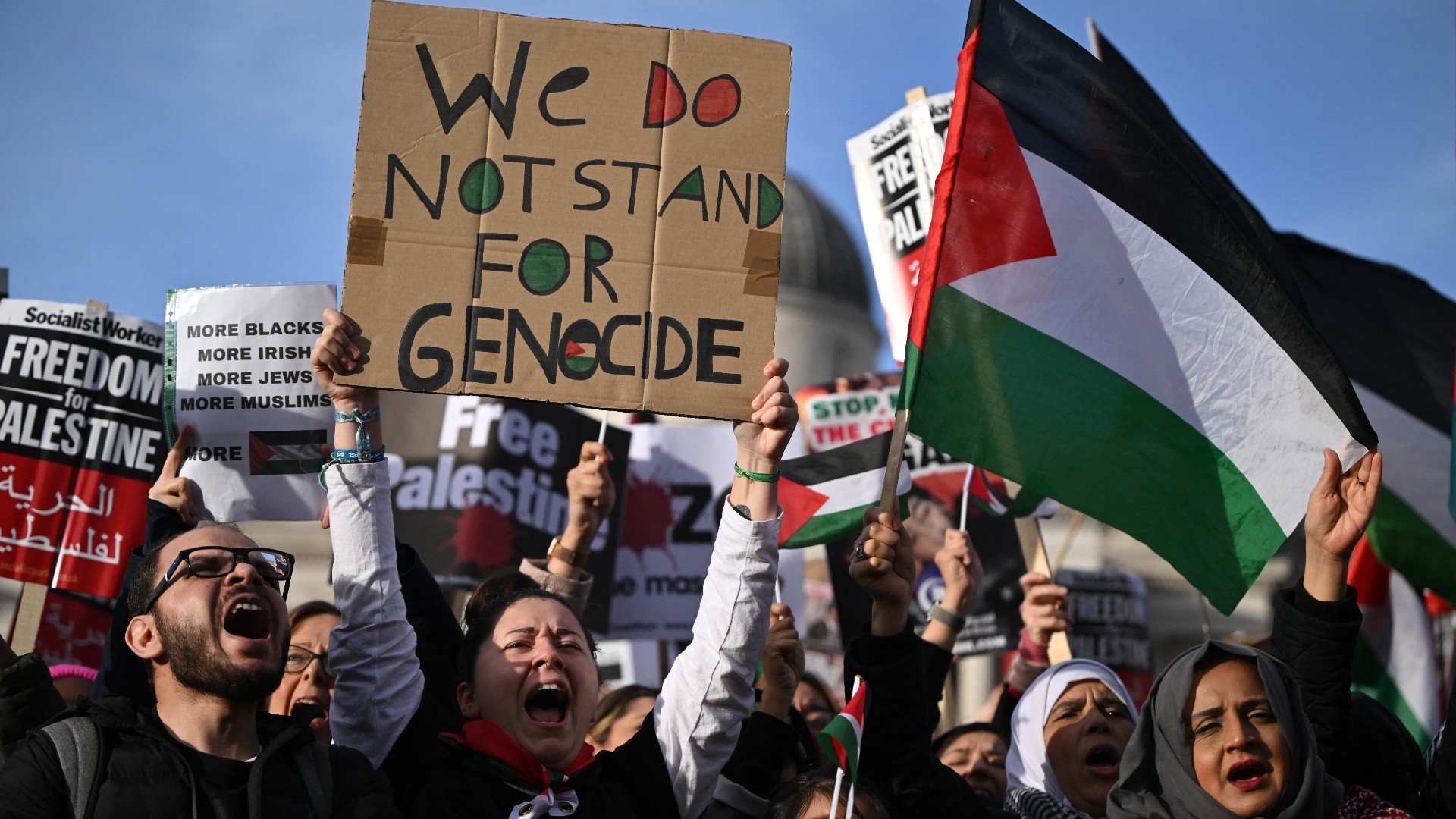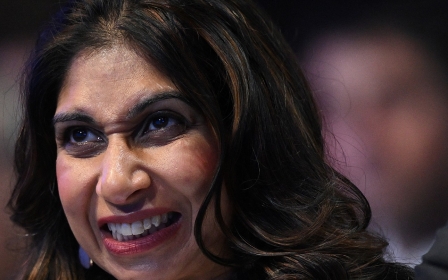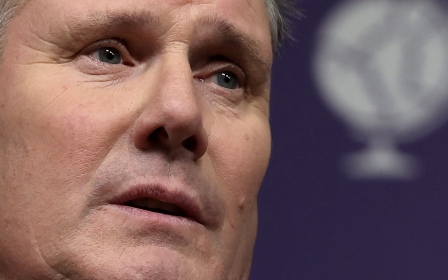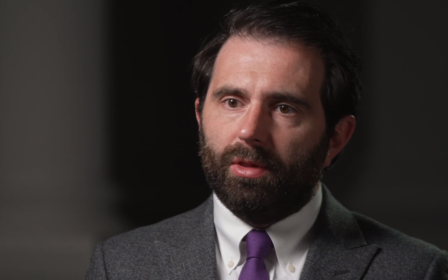Calling for a ceasefire is never hateful, it’s Suella Braverman who is stoking division

Virtue signalling, no respect for British veterans and being an apologist for violence. The British home secretary’s latest fulminating tirades would perhaps be best directed to a mirror.
Suella Braverman is no stranger to wading into public discourse and trying to find ways to divide people in order to unite her base.
Her latest example equated peaceful demonstrations in support of Palestinians with "hate marches". She has taken particular offence to the upcoming protest that takes place today, saying a protest would 'desecrate' Armistice Day.
It is an interesting position to take, no doubt deeply offensive to many veterans of the Palestine Regiment, formed in 1942 as part of the British Army to operate in North Africa.
It’s very possible that descendants of these veterans will be at the Palestine marches, but this irony appears to be lost on Braverman.
More fundamentally, her comments strike at the very heart of traditional British values. Freedom of speech, peaceful assembly, and civil liberties are deeply rooted in our national character.
Follow Middle East Eye's live coverage for the latest on the Israel-Palestine war
They have shaped our democracy and acted as a beacon for countless nations. Last year, the home secretary said her party should bring back its old logo, the "Torch of Liberty", but that torch does not seem to be shining very brightly right now.
To label peaceful protests, a manifestation of these core values, as "hate marches", is not only an affront to our traditions but also a smear on the essence of the current protests.
Reckless comments
Calling for a ceasefire and an end to British complicity in war crimes and crimes against humanity should not be a controversial position.
The organisation I founded, the International Centre of Justice for Palestinians (ICJP), has highlighted these arguments in our letters to the Prime minister, Rishi Sunak, and the leader of the opposition, Sir Keir Starmer, issuing them with a notice of intention to prosecute UK politicians who are complicit in these crimes.
The recklessness of the home secretary’s comments is damaging both at home and abroad.
Domestically, it threatens to deepen divisions, fostering an environment where dialogue is replaced with distrust.
Internationally, it signals that Britain, a nation known for its commitment to human rights and democracy, is willing to waver on these principles. Such distortions can lead to people ending up in different universes and increasingly distrusting each other.
Then there is also the matter of how politicians, including both the home secretary and the prime minister, put pressure on the Metropolitan Police to ban a peaceful protest.
Of course, the Commissioner resisted the pressure, safeguarding the police’s crucial independence and the right to protest. But the fact that he even had to resist this pressure is remarkable.
Commemorating a ceasefire
Both Sunak and Braverman spoke about how the protests were an affront to Armistice Day. As though somehow, calling for a ceasefire was offensive to a day commemorating a ceasefire.
Both Sunak and Braverman spoke about how the protests were an affront to Armistice Day. As though somehow, calling for a ceasefire was offensive to a day commemorating a ceasefire
As though mourning the senseless loss of life from war was a controversial call on a day dedicated to precisely that.
They will obediently mouth the words "lest we forget", virtue signalling to what they think the Conservative base wants to hear, while all the while egging on Israel’s unequivocal right to defend itself when over 11,000 Palestinians have been killed as a result.
The burden now lies with our politicians to tread responsibly. In their hands lies the power to either bridge divides or deepen them.
And, while some politicians may want to woo voters with tactics of division and hate, their words, their actions, will shape the narrative, influencing public opinion and determining the direction our society takes.
At this critical juncture, we need leaders who prioritise unity over division, and understanding over prejudice.
In my career, spanning over 20 years, I have represented diverse clients, from high-profile figures seeking to protect their reputations to victims of war crimes seeking justice.
The common thread binding them all has been their faith in the principles of justice, human rights, and the rule of law.
We must uphold this faith - now more than ever - or divided we all fall.
The views expressed in this article belong to the authors and do not necessarily reflect the editorial policy of Middle East Eye.
Middle East Eye propose une couverture et une analyse indépendantes et incomparables du Moyen-Orient, de l’Afrique du Nord et d’autres régions du monde. Pour en savoir plus sur la reprise de ce contenu et les frais qui s’appliquent, veuillez remplir ce formulaire [en anglais]. Pour en savoir plus sur MEE, cliquez ici [en anglais].





